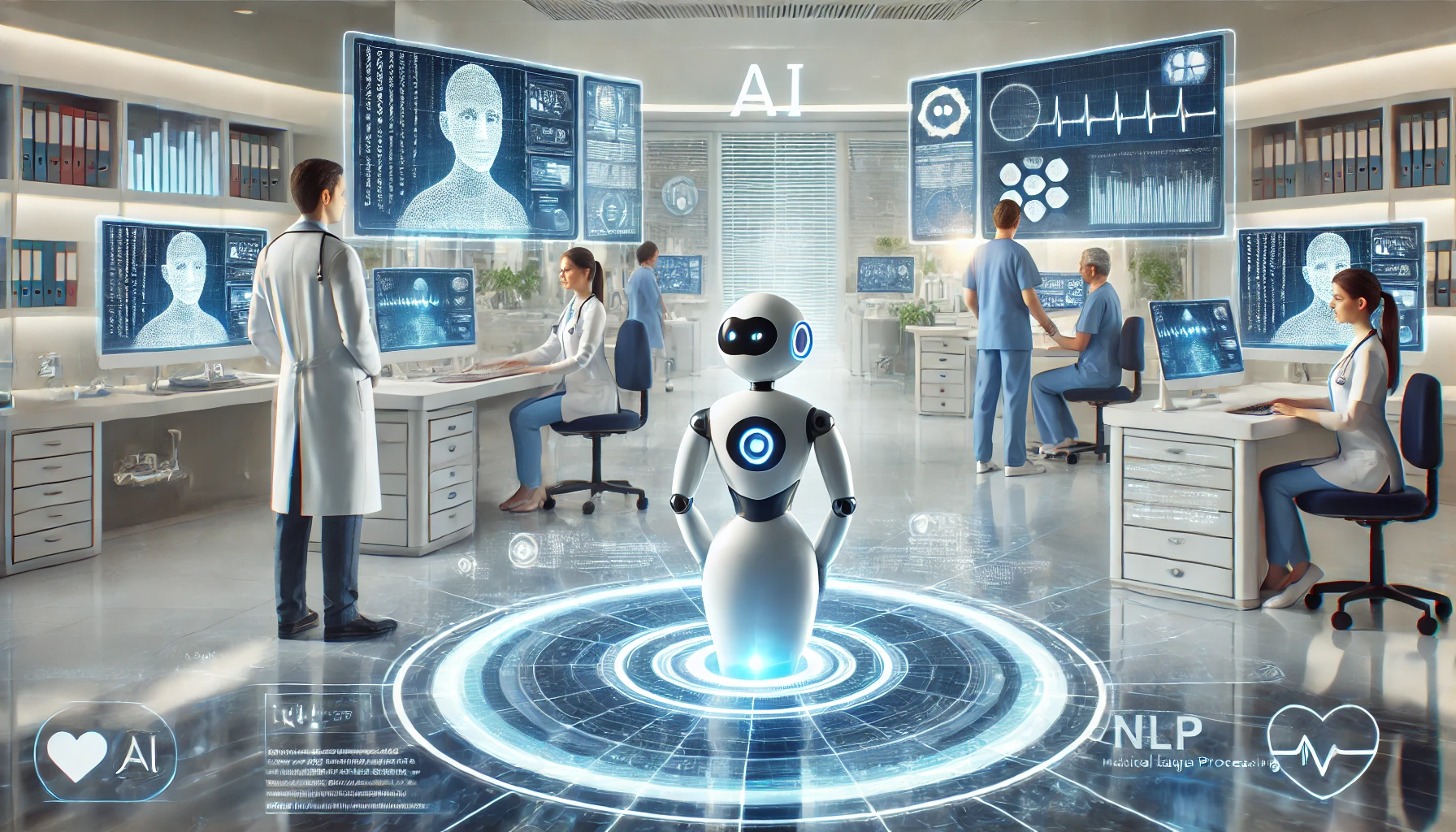Natural Language Processing in Healthcare: The New Doctor in Town or Just a Really Smart Assistant?

The Rise of AI in Healthcare: A Chatbot for Your Health?
Let’s face it: healthcare has entered a new era. Gone are the days when diagnosing a cough meant flipping through dusty medical textbooks. Now, it’s all about algorithms, data processing, and—wait for it—chatbots! Natural Language Processing (NLP) is leading the charge, from handling patient queries to even diagnosing illnesses. AI-powered chatbots, like the ones you might already have helping you order pizza or troubleshoot your tech issues, are now stepping up to provide medical support. Sounds like the future, right? But it’s already happening. AI chatbots are quickly becoming the go-to for answering patient questions, booking appointments, and offering follow-up care. And the best part? They’re available 24/7. Just try getting that kind of dedication from a human doctor!
Medical Coding: AI Just Found a Way to Save Doctors Hours of Tedious Work
While NLP chatbots are helping patients, they’re also making doctors’ lives easier. One of the most exciting applications of NLP is automated medical coding. You know, those cryptic codes doctors use to describe every condition, procedure, and symptom. Thanks to NLP, AI can now scan patient records and assign the right codes faster than you can say 'Where’s my insurance card?' This is saving healthcare professionals a ton of time, reducing errors, and letting doctors focus on what they do best—being doctors. Plus, with AI taking care of the paperwork, there's less chance of miscommunication, which is always a good thing when it comes to your health.
Can NLP Diagnose You? It’s Not Sci-Fi—It’s Science Fact
But wait, there’s more! NLP isn’t just about answering questions and coding. It’s actually helping diagnose medical conditions. By analyzing patient interactions—whether through voice, text, or even social media—NLP tools can identify patterns that might indicate underlying health issues. For example, specific language patterns in speech could hint at early stages of diseases like Alzheimer’s. Or written responses in a mental health survey might trigger alerts for depression. Pretty impressive, huh? But it’s not magic—it’s math and algorithms. Of course, while AI can assist in diagnosis, it’s not replacing doctors any time soon. Still, it’s a powerful tool in their kit.
The Ethical and Privacy Challenges: Is AI Too Nosey?
Now, before you get too excited about having a chatbot as your new doctor, let’s talk ethics. With great AI power comes great responsibility. One of the biggest challenges with NLP in healthcare is data privacy. These systems are processing massive amounts of sensitive health data, and the question is: who gets access? And how is this data being protected? There’s also the issue of bias in AI algorithms. If an AI tool is trained on biased data, it could make inaccurate or even harmful suggestions. This is where governments are starting to step in, introducing regulations to ensure AI-driven patient communication tools are transparent, safe, and—most importantly—ethical. After all, no one wants a robot making biased decisions about their health!
The Future of NLP in Healthcare: Are You Ready for Your Digital Doctor?
The future looks bright for NLP in healthcare, but there are still hurdles to overcome. As AI continues to evolve, so will its role in the medical field. We’re likely to see more advanced chatbots, even more accurate diagnostic tools, and deeper integration of AI in patient care. But will AI ever fully replace human doctors? Probably not. While NLP and AI can assist with diagnosis and patient support, the empathy and nuanced understanding that human doctors provide can’t be replicated by a machine—at least not yet. So, the real question is: How comfortable are you with AI playing a bigger role in your healthcare?



